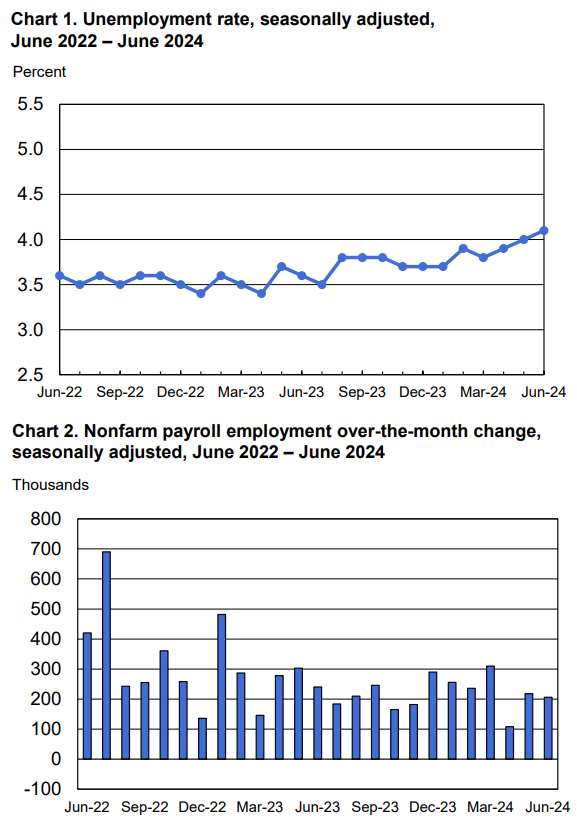 As the tumultuous political environment builds momentum approaching election day, the focus on the monthly employment data intensifies. Today’s data provides the pundits with fuel for another round of competing analysis. Most labor market watchers from Wall Street to Main Street and in Washington DC were expecting to see a modest uptick in job growth and that is exactly what was delivered. However almost 75 percent of the job gains were in government, healthcare, and social assistance segments.
As the tumultuous political environment builds momentum approaching election day, the focus on the monthly employment data intensifies. Today’s data provides the pundits with fuel for another round of competing analysis. Most labor market watchers from Wall Street to Main Street and in Washington DC were expecting to see a modest uptick in job growth and that is exactly what was delivered. However almost 75 percent of the job gains were in government, healthcare, and social assistance segments.
The 206,000 job gain in today’s data released by the Bureau of Labor Statistics (BLS) monthly payroll report was in-line with economists’ expectations. The BLS also revised down payroll employment data in April by 57,000 and for May by 54,000 jobs. With these revisions, employment in April and May combined is 111,000 lower than previously reported.
The unemployment rate continued to up-tick now at 4.1 percent versus 3.6 percent in June 2023.
“Despite slower GDP growth and high interest rates, the economy continues to create jobs and unemployment remains near record lows. Within this environment, most clients, served by our global Network of over 200 executive recruitment offices, report ongoing challenges finding the top technical, executive, professional and managerial talent they need to drive growth. Many clients are exploring new ways to both retain top performers and to recruit new talent based on a ‘skills-based’ approach to hiring and talent-management,” noted Rick Hermanns, president and chief executive officer of HireQuest Inc., parent company of MRINetwork.
“The Financial Times (FT) recently profiled what organizations are doing to ensure producers have the right skills. What they found was similar to what our recruiters see every day as they work with clients and candidates. Successful organizations will need to master additional skills in dealing with existing employees and in attracting and selecting top new performers. Among the factors FT identified include ensuring teams and new hires receive training in the productive use of AI. FT notes that all JPMorgan Chase new hires will understand how to write the most effective text ‘prompts’ to generate maximum value from AI responses. Second, top firms will invest in ‘up-skilling,’ with investments ranging from payment for university tuition costs to funding industry certifications and offering career coaching. A third effort identified are firms who tackle the ‘paper-ceiling’ of college degrees by finding talented players who acquired skills without a formal college degree.
The Wall Street Journal’s Justin Lahart provided a perspective about this month’s data noting it was not clear “…what the right level of job growth is to keep the labor market in balance. Before the pandemic, economists at Goldman Sachs reckoned that, as a result of slowing population growth and more Americans hitting retirement age, the economy only needed to add 70,000 to 80,000 jobs a month to keep the unemployment rate steady. Now, as a result of the jump in immigration, they say it could be around 200,000, ‘But that is with very little confidence,’ added Goldman’s chief economist, Jan Hatzius.”
Reporters at Fox Business noted that today’s data and the downward adjustment of April and May jobs growth, “…may please the federal Reserve, which is looking for signs inflation is easing. This follows the closely watched ADP report which showed companies added 150,000 jobs last month, missing the 160,000 gain that economists surveyed by Refinitiv predicted and down from the revised 157,000 figure in May. Both data points, closely watched by the Federal Reserve, will influence when policymakers will begin their long-anticipated rate-cutting cycle. Chairman Jerome Powell, speaking earlier this week, reiterated the need for inflation to be lower.”
Government employment expansion continued to lead job growth in the non-farm labor force data reported by the BLS. Government employment rose by 70,000 in June, higher than the average monthly gain of 49,000 over the prior 12 months. Over the month, employment increased in local government, excluding education (+34,000) and in state government (+26,000).
Healthcare added 49,000 jobs in June, lower than the average monthly gain of 64,000 over the prior 12 months and employment in social assistance increased by 34,000 in June versus an average growth of 22,000 over the past 12 months.
Construction added 27,000 jobs in June, slightly higher than the average monthly gain of 20,000 over the prior 12 months.
Employment in professional, scientific, and technical services continued to trend up in June (+24,000).
Retail trade employment changed little in June (-9,000), after trending up earlier in the year. Employment in professional and business services declined slightly in June (-17,000) and has shown little change over the year. Temporary help services employment declined by 49,000 over the month and is down by 515,000 since reaching a peak in March 2022.
Employment showed little change over the month in other major industries, including mining, quarrying, and oil and gas extraction; manufacturing; wholesale trade; transportation and warehousing; information; financial activities; leisure and hospitality; and other services.
“Traditionally our recruiters and clients have judged potential talent hires primarily using education and specific work experience criteria along with behavioral and skill attributes that could be quantified. Today, a new skills-based approach looks at not only traditional criteria but looks into a candidate’s interpersonal skills and their ability thrive in tomorrow’s non-linear career paths. Clients need to better understand a new hires potential and their ability to flex in delivering work needed in the future,” noted Hermanns.

Connect with MRINetwork